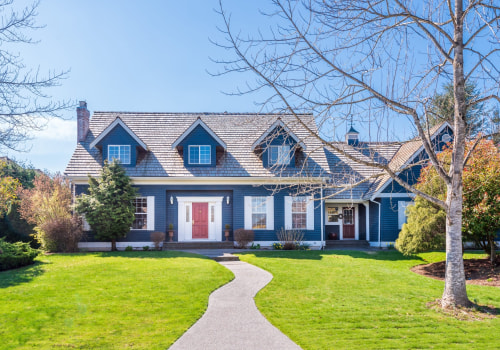When it comes to selling or buying a home, one of the first things people notice isn’t the layout, square footage, or kitchen upgrades—it’s the exterior. Curb appeal, or the visual attractiveness of a home’s exterior when viewed from the street, plays a crucial role in shaping a potential buyer’s perception. But the question remains: does curb appeal truly affect home value? The answer is a resounding yes. A well-maintained exterior can not only create a strong first impression but also significantly boost a home’s marketability and actual monetary value. In highly competitive markets, such as Wellington real estate, where buyers have ample choices, curb appeal can be the differentiator that gets a property sold faster—and often for a higher price.
The Psychology of First Impressions
Curb appeal works on a psychological level. Within seconds of arriving at a property, buyers begin forming opinions. A clean driveway, fresh landscaping, a new coat of paint, or stylish entryway can create a sense of pride and anticipation before they even step inside. Conversely, chipped paint, overgrown lawns, and cluttered porches can plant doubts in a buyer’s mind, making them question the overall upkeep of the home—even if the interior is immaculate. This instant emotional response is critical because it influences how buyers view the rest of the property and can even impact the perceived value beyond what appraisers may conclude based on interior features alone.
Quantifying the Value of Curb Appeal
Several studies and real estate industry reports have confirmed the financial benefits of good curb appeal. According to the National Association of Realtors (NAR), homes with high curb appeal tend to sell for 7% to 14% more than similar properties with a neglected exterior. Simple improvements like power-washing siding, adding new mulch, planting flowers, or repainting the front door can offer substantial returns on investment. In fact, some real estate professionals suggest that curb appeal improvements are among the most cost-effective ways to boost home value, especially for sellers who want to make a strong impression without undertaking major renovations.
Key Elements That Enhance Curb Appeal
Improving curb appeal doesn’t require a massive budget, but it does require attention to detail. Landscaping is one of the most impactful aspects—neatly trimmed hedges, healthy green lawns, and colorful flower beds contribute significantly to a welcoming feel. Lighting is another underrated component; well-placed outdoor lighting adds security and charm, especially for evening showings. The condition of walkways, driveways, roofs, gutters, and garage doors also plays a role in curb appeal. Even the mailbox and house numbers can influence how a home is perceived. Together, these elements create a cohesive and polished appearance that elevates the entire property in the eyes of potential buyers.
The Role of Curb Appeal in Competitive Markets
In bustling real estate markets like Wellington, where buyers may be comparing several homes in the same price range, curb appeal can tip the scales. A home that looks ready to welcome someone in is more likely to attract serious offers quickly. Curb appeal doesn't just influence homebuyers; it also affects appraisers and real estate agents. A well-maintained exterior signals to appraisers that the property has likely been cared for inside as well, potentially leading to a more favorable valuation. Real estate agents are also more inclined to prioritize listings with high curb appeal in marketing materials, knowing that these homes are easier to show and sell.
Curb Appeal and Online Listings
In today’s digital age, the importance of curb appeal extends beyond in-person visits. The first photo on a real estate listing is usually a wide shot of the home's exterior. If that image doesn’t grab attention or make a good impression, potential buyers might scroll past without ever viewing the interior photos. Therefore, the exterior presentation must be compelling enough to encourage clicks and showings. For sellers in competitive online-driven markets, investing in curb appeal can mean the difference between a quick sale and prolonged time on the market.
Conclusion: A Wise Investment for Sellers and Buyers Alike
Curb appeal is not just about aesthetics—it’s a strategic investment that can influence both perception and price. Whether you’re a seller looking to maximize returns or a buyer evaluating your next purchase, paying attention to exterior details can have a real financial impact. In dynamic markets like Wellington real estate, where competition is fierce and buyers are savvy, a home’s outward appearance can be just as important as what’s inside. Enhancing curb appeal is a proven way to add value, attract interest, and ensure that your home makes the strongest impression possible—from the curb to the closing table.






